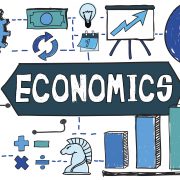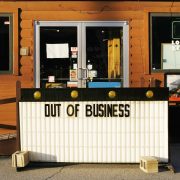But for the last century or so, policymakers in the United States, like much of the world, have not been content to allow the economy to self-correct. They want to fudge around with tax and interest rates, even if that means countenancing absurdities like more rounds of quantitative easing, negative interest rates, or dropping money out of helicopters.
Cutting taxes is always a good idea and Trump’s tax cuts may have kept the U.S. out of recession thus far despite his onerous trade war. But fiscal and monetary policies are political minefields and hence cannot be relied upon.
Instead of cutting taxes or already super-low interest rates, many so-called progressives want to combat recession by increasing “automatic stabilizers,” like unemployment insurance and SNAP, and thus “save” an economy that does not need saving with their preferred social policies. While arguably preferable to another Great Corporate Bailout a la 2009, automatic bailouts to individuals redistribute resources rather than increaseing production.
So why not combat recession by increasing economic freedom (reduce economic repression) instead? After all, income redistribution does not cause economic growth. The world’s richest countries redistribute the most income because they can afford to, not because the redistribution helps their economies, which thrive due to the increases in productivity that occur wherever peace, easy taxes, and a tolerable administration of justice reign.
Economic growth and economic freedom are also highly correlated but not because rich countries can afford to buy more freedom the way they can afford more redistribution. In fact, economic freedom causes economic growth by providing people with incentives to work longer, harder, and, most importantly, smarter.
Best of all, economic freedom can be increased today, before recession strikes, leaving us better off in recession than we would otherwise be without recession.
Policymakers usually talk about rates of economic growth or shrinkage but that is misleading in many ways. What ultimately matters to individual quality of life are income levels, not rates of change. You would rather live in a society with a $50,000 per capita income and 2 percent rate of growth than a society growing at 10 percent per year with a per capita income of $1,000, wouldn’t you? If you hesitated to answer for even a second, consider this: per capita income in the richer economy grew by $1,000 ($50,000*.02), while that in the poorer one increased by only $100 ($1,000*.10). More importantly, though, you would be better off living in the richer society even if per capita incomes were temporarily shrinking there.
A rich society that is not living up to its potential due to economic repression, i.e., restrictions on economic freedom, is a tragedy, even if it is more difficult to commiserate with people in such societies compared to those forced to live (often literally) in impoverished lands. As Bob Lawson and Ben Powell point out in Socialism Sucks, the victims of economic basket cases like Cuba, North Korea, and Venezuela are easy to pity because they have no beer, or it’s warm, or it tastes like an ass’s ass (to be as blunt as the authors are throughout their instructively hilarious tale!).
But it also sucks that even after a decade of economic growth, the per capita income of the United States today is much lower than it would have been if the New Deal, Great Society, and “wars” on this, that, and the other had never occurred. Compared to that counterfactual world where economic freedom remained sky high throughout the twentieth and twenty-first centuries, America today is in a wicked economic slump. We still might not have flying cars, but our per capita income today could easily be north of $100,000 real dollars.
The economic costs of our nation’s many past policy mistakes are sunk, i.e., irrecoverable. The proverbial ship has sailed, and the water has passed under the bridge. But we do not have to continue making the same mistakes day after day forever and a day. Let’s fight the next recession today by ridding ourselves of the collected policy detritus of the past and allow human, financial, and physical capital to flow freely to their most highly valued uses.













